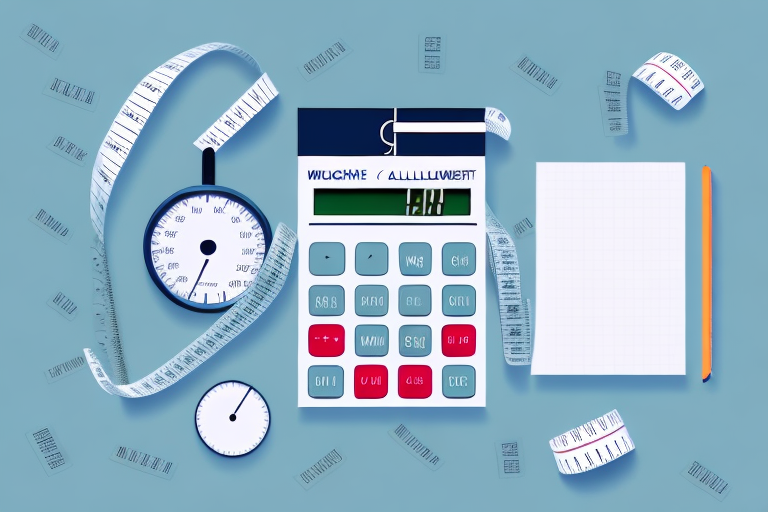Maintaining a Healthy Weight: The Importance of Weight Calculators
Maintaining a healthy weight is crucial for overall health and well-being. However, many people struggle to determine their ideal weight or understand how their weight impacts their health. Fortunately, a weight calculator can simplify the process of calculating your ideal weight and tracking your progress toward achieving your health goals. In this article, we'll delve into the benefits of using a weight calculator, how to choose the right calculator, interpret your results, and more.
Benefits of Using a Weight Calculator
Determining Your Body Mass Index (BMI)
A weight calculator helps you determine your Body Mass Index (BMI), a widely used tool to assess whether you are within a healthy weight range. BMI is calculated using your height and weight, providing a quick overview of your potential health risks. According to the Centers for Disease Control and Prevention (CDC), a BMI of 18.5-24.9 is considered healthy, 25-29.9 is overweight, and 30 or higher is obese.
Setting Realistic Weight Loss Goals
Weight calculators can assist in setting achievable weight loss targets. By providing a target weight based on your height and other factors, these tools help you create a sustainable and realistic weight loss plan, reducing the risk of setting unattainable goals that may lead to frustration.
Optimizing Athletic Performance
For athletes and fitness enthusiasts, understanding your BMI and ideal weight can help optimize performance and prevent injuries. Maintaining an appropriate weight for your sport or activity enhances efficiency and reduces the strain on your body.
Understanding Body Mass Index (BMI)
What is BMI?
Your BMI is a measure of body fat based on your height and weight. It is one of the most commonly used tools to determine if a person is at a healthy weight. The formula is:
- BMI = weight (kg) / height (m)²
A BMI of 18.5-24.9 is considered healthy, 25-29.9 is overweight, and 30 or higher is obese. However, BMI does not account for muscle mass, bone density, or overall body composition, making it an imperfect measure of health.
Limitations of BMI
While BMI is useful for assessing weight-related health risks, it should not be the sole indicator of health. Factors such as muscle mass, body fat percentage, and distribution, as well as other health metrics like blood pressure and cholesterol levels, provide a more comprehensive view of an individual's health.
For more information, refer to the World Health Organization's fact sheet on obesity and overweight.
Choosing the Right Weight Calculator
Factors to Consider
When selecting a weight calculator, consider the following factors to ensure accuracy and relevance:
- Age and Gender: Some calculators adjust BMI calculations based on age and gender.
- Activity Level: Calculators that account for your daily activity can provide more personalized recommendations.
- Additional Metrics: Tools that include waist circumference or body fat percentage offer a more detailed assessment.
Types of Weight Calculators
There are various types of weight calculators available:
- BMI Calculators: Focus primarily on height and weight to determine BMI.
- Calorie Calculators: Estimate daily calorie needs based on factors like age, gender, height, weight, and activity level.
- Body Fat Calculators: Provide estimates of body fat percentage using additional measurements.
For accurate and reliable calculations, consider using tools provided by reputable sources such as the CDC BMI Calculator or the National Heart, Lung, and Blood Institute’s BMI Calculator.
Interpreting Your Weight Calculator Results
Understanding Your BMI
After calculating your BMI, you'll receive a number that falls within a specific range:
- Underweight: BMI below 18.5
- Healthy Weight: BMI 18.5-24.9
- Overweight: BMI 25-29.9
- Obese: BMI 30 or higher
It's important to interpret your BMI in the context of other health indicators. If your BMI falls outside the healthy range, consider consulting a healthcare professional for a comprehensive health assessment.
Beyond BMI: Additional Health Metrics
Alongside BMI, consider monitoring other health metrics such as:
- Blood Pressure: High blood pressure can indicate increased health risks.
- Cholesterol Levels: Elevated cholesterol can contribute to heart disease.
- Blood Sugar Levels: High blood sugar can lead to diabetes.
These metrics provide a more holistic view of your health beyond what BMI alone can offer.
Effective Use of Weight Calculators
Accurate Data Entry
To ensure the accuracy of your weight calculator results:
- Enter your weight and height in the correct units (kilograms and meters or pounds and inches).
- Verify your data before submitting to avoid discrepancies in your BMI calculation.
- Consider having someone else double-check your measurements for added accuracy.
Regular Monitoring and Tracking
Using a weight calculator regularly can help you track your progress over time:
- Set a Schedule: Determine how frequently you'll use the calculator based on your goals (e.g., weekly for weight loss, monthly for maintenance).
- Visualize Progress: Some calculators offer graphical representations of your BMI changes, aiding in motivation and adjustment of your health strategies.
- Combine with Other Healthy Habits: Pair weight tracking with regular exercise and a balanced diet for optimal health outcomes.
Avoiding Common Mistakes with Weight Calculators
Overreliance on BMI
While BMI is a useful tool, relying solely on it to assess your health can be misleading. Consider it as part of a broader health assessment, including other metrics and professional evaluations.
Fixating on Numbers
Focusing exclusively on BMI numbers can lead to unnecessary stress. It's essential to prioritize overall well-being, including mental health, energy levels, and physical fitness, rather than merely aiming for a specific BMI.
Ignoring Individual Differences
Everyone's body is unique. Factors such as muscle mass, bone density, and genetics play significant roles in determining a healthy weight. Personalize your health goals based on comprehensive assessments rather than generalized BMI categories.
Integrating Weight Calculators into Your Health Plan
Complementary Tools and Resources
A weight calculator is one component of a comprehensive health plan. To maximize its effectiveness:
- Consult Professionals: Work with a personal trainer or registered dietitian to create a personalized fitness and nutrition plan.
- Join Support Groups: Engaging with communities or support groups can provide motivation and accountability.
- Utilize Tracking Apps: Mobile apps can help you monitor various health metrics and maintain consistency in your health journey.
Setting Realistic and Sustainable Goals
Healthy weight loss is typically gradual, aiming for a steady rate of 1-2 pounds per week. Use your weight calculator to set achievable milestones, adjust your plans as needed, and celebrate your progress along the way.
For more guidance on healthy weight management, visit the NHS BMI Calculator and Guidelines.
Additional Resources for Achieving Your Health Goals
Beyond weight calculators, numerous resources can support your journey to a healthier weight:
- CDC Healthy Weight Resources
- World Health Organization on Obesity
- Mayo Clinic Nutrition and Healthy Eating
Remember, achieving and maintaining a healthy weight is a lifelong process. With the right tools, resources, and mindset, you can achieve and sustain your health goals effectively.






















